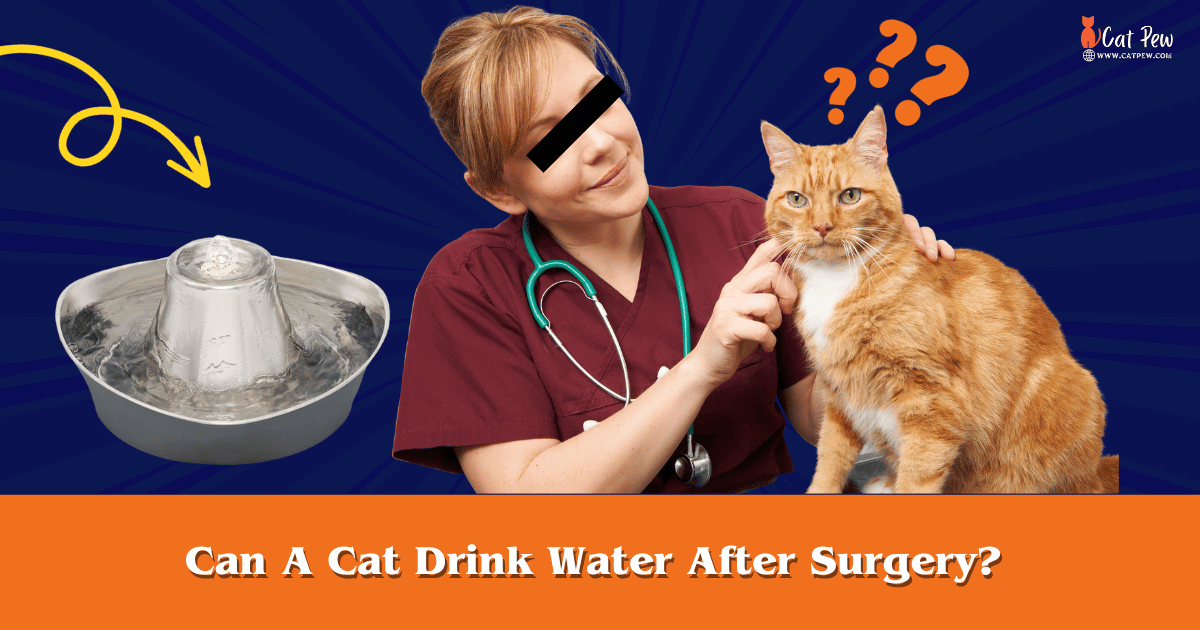Can A Cat Drink Water After Surgery?
Yes, a cat can drink water after surgery. Cats need to stay hydrated to aid in their recovery process.
Introducing water to a cat after surgery is crucial for their overall well-being. Hydration plays a vital role in healing, as it helps flush out toxins from the body, maintains organ functions, and promotes healthy blood circulation. However, it is advisable to consult with your veterinarian regarding your cat’s specific post-surgery care instructions, as they may have prescribed a restricted diet or fluid intake.
Ensuring the water is clean and easily accessible to your cat will help encourage them to drink. Monitoring their water intake post-surgery is essential, as any disruption in their drinking habits should be reported to the veterinarian immediately.
Understanding The Importance Of Hydration
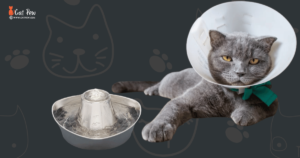
Hydration is crucial for cats’ overall well-being and health, especially during the recovery period after surgery. Proper hydration plays a vital role in ensuring a smooth healing process and aiding in the cat’s recovery. In this article, we will explore the significance of water in a cat’s body and the impact of dehydration on post-surgery recovery.
The Role Of Water In A Cat’s Body
Water is essential to a cat’s body, constituting around 60-70% of their weight. It is critical in maintaining various bodily functions, including digestion, circulation, and temperature regulation.
Cats need sufficient water to support their organ function, particularly the kidneys. Water helps to flush out toxins and waste products from their bodies, keeping their kidneys healthy and preventing the development of urinary tract issues. Additionally, water also aids in absorbing and transporting vital nutrients, contributing to overall vitality.
The Impact Of Dehydration On Post-surgery Recovery
Dehydration can have detrimental effects on a cat’s post-surgery recovery. When a cat undergoes surgery, their body undergoes physiological changes, including inflammation and fluid loss. During this time, it is crucial to ensure proper hydration to support the healing process.
Dehydration can impede recovery by inhibiting proper wound healing and slowing down tissue regeneration. It can also lead to complications such as constipation, urinary tract infections, and electrolyte imbalances, which can further prolong the recovery time.
Furthermore, dehydration can affect a cat’s appetite, leading to a decrease in food consumption. This can interfere with the cat’s nutritional intake, ultimately hindering their recovery. Ensuring adequate hydration post-surgery is vital in maintaining optimal bodily function and supporting the cat’s overall well-being.
In conclusion, understanding the importance of hydration in post-surgery recovery for cats is crucial. Water is an integral part of a cat’s body, and dehydration can significantly negatively affect their healing process. Providing clean and fresh water to your cat after surgery can support their recovery, enhance their well-being, and promote a speedy healing process.
Preparing Your Cat For Surgery
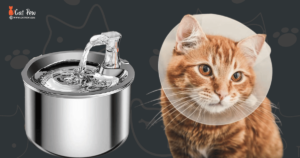
When it comes to preparing your cat for surgery, there are important considerations to keep in mind. One such concern is ensuring your feline friend is adequately hydrated before the procedure. Hydration plays a crucial role in your cat’s overall well-being and recovery process. Therefore, discussing water intake with your veterinarian and understanding the best practices for maintaining proper hydration levels is essential.
Hydration Before The Procedure
Proper hydration before surgery is vital for your cat’s health and well-being. It helps to ensure that your cat is in the best possible condition for the procedure and aids in their recovery afterward. Adequate hydration helps prevent complications and allows your veterinarian to administer anesthesia safely. To ensure your cat is well-hydrated:
- Provide fresh and clean water at all times
- Monitor your cat’s water intake regularly
- Encourage your cat to drink water by keeping their water bowl easily accessible
- If your cat is reluctant to drink, consider using a pet water fountain to entice them
- Avoid feeding your cat dry food exclusively, as it may not provide sufficient hydration
Discussing Water Intake With Your Veterinarian
Before your cat’s surgery, you must have a conversation with your veterinarian about their water intake. Your vet can provide specific recommendations based on your cat’s individual needs and the nature of the upcoming procedure. Some aspects that you may want to discuss include:
- Specific water intake guidelines before the surgery
- Whether or not fasting is necessary before the procedure
- Any restrictions on water intake leading up to the surgery
- Concerns or questions you may have about your cat’s hydration
Your veterinarian will consider your cat’s overall health, specific condition, and type of surgery to provide the most accurate information and guidelines. Following their advice will help ensure that your cat enters the surgical procedure in optimal condition.
Water Intake Immediately After Surgery
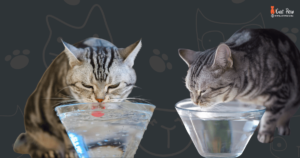
After undergoing surgery, it is vital to closely monitor your cat’s water intake to ensure proper hydration and a smooth recovery process. Promoting adequate hydration helps prevent complications and helps flush out toxins from your cat’s system.
Monitoring Your Cat’s Water Consumption
Keeping a vigilant eye on your cat’s water consumption is crucial during the immediate post-surgery period. Observe how much water your cat drinks and note any significant changes or deviations from their regular intake. It is usual for cats to have a slightly reduced thirst after surgery, especially in the first 24 to 48 hours. However, if your cat shows a complete disinterest in water or is not drinking, you must consult your veterinarian immediately to rule out any potential complications.
Encouraging Small, Frequent Sips Of Water
To facilitate your cat’s water intake after surgery, it is recommended to encourage small and frequent sips throughout the day. This approach prevents your cat from feeling overwhelmed and helps them gradually regain their normal hydration levels. Here are a few tips to promote water consumption:
- Place multiple water bowls strategically around the house to make it easy for your cat to access water at all times.
- Use shallow bowls or saucers that are easily accessible and less likely to irritate any surgical wounds.
- Freshen the water frequently to ensure it is appealing and clean, as some cats are more inclined to drink fresh water.
- Add a few drops of low-sodium chicken broth or tuna water to the water bowl to entice your cat with a mild, flavorful scent.
- If your cat hesitates to drink, gently offer water using a syringe or dropper, positioning it near their mouth. Ensure you are not forcing the water and only provide small amounts at a time to prevent choking.
By diligently monitoring your cat’s water intake and encouraging small, frequent sips of water, you can help facilitate a smooth recovery process after surgery. Adequate hydration promotes healing and reduces the risk of complications, allowing your beloved feline friend to bounce back faster. Remember to consult your veterinarian promptly if you have concerns about your cat’s water intake or overall recovery.
Managing Water Intake During Recovery
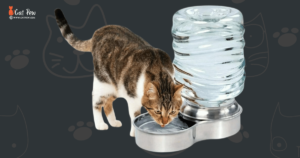
When a cat undergoes surgery, paying attention to their water intake during the recovery period is essential. Adequate hydration is crucial in ensuring your feline friend’s smooth and speedy recovery. Here, we discuss the factors affecting their water intake and provide valuable tips for maintaining proper hydration post-surgery.
Factors That May Affect Your Cat’s Water Intake
Several factors can influence a cat’s water intake after surgery. Understanding these factors can help you better manage their hydration needs. Here are some factors to consider:
- Medications: Certain medications prescribed during recovery may cause increased or decreased thirst in cats. It is essential to understand the potential side effects of any drugs your cat may take and how they can affect their water intake.
- Pain and discomfort: Cats may experience pain and discomfort after surgery, which can affect their appetite and thirst. They may be less inclined to drink water if they are in pain. A comfortable recovery environment can help alleviate their discomfort and encourage them to stay hydrated.
- Changes in routine: Surgery can disrupt a cat’s usual practice, leading to stress or anxiety. These emotional changes can impact their appetite and water intake. Keeping their recovery space calm and familiar can reduce stress and encourage them to drink water regularly.
Tips For Ensuring Adequate Hydration During The Recovery Period
Proper hydration is crucial for your cat’s recovery. Here are some tips to help ensure they stay adequately hydrated post-surgery:
- Monitor water intake: Monitor your cat’s water bowl and their water intake throughout the day. This will give you an idea of how much water they consume and whether any changes are needed.
- Provide fresh water: Ensure your cat has access to clean water at all times. Cats are likelier to drink when the water is appealing and free of odor or contaminants.
- Consider alternative water sources: Some cats prefer running water or drinking from fountains. Experimenting with different water sources can encourage your cat to drink more.
- Hydrate through food: In addition to offering water, consider providing wet food with a higher moisture content. This will supplement their water intake and offer them essential nutrients for recovery.
- Encourage frequent small drinks: Cats may find it more comfortable to drink smaller amounts at a time during the recovery period. Please encourage them to drink by offering water in smaller portions throughout the day.
By considering these factors and following these tips, you can help ensure your cat stays adequately hydrated and promotes a smooth recovery after surgery. However, it’s always best to consult your veterinarian for personalized advice based on your cat’s needs.
Signs Of Complications And When To Seek Veterinary Help
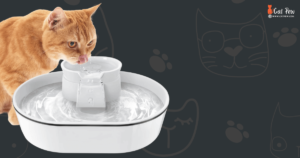
After surgery, monitoring your cat for signs of complications and knowing when to seek veterinary help is essential. If your cat cannot drink water after surgery, it may indicate a potential difficulty, and you should consult your veterinarian for assistance.
Recognizing Signs Of Dehydration Or Other Complications
After surgery, monitoring your cat for any signs of dehydration or other complications is crucial. Dehydration can occur when your cat is not drinking enough water, which can cause concern. Knowing the warning signs to watch out for and when to seek veterinary help is essential.
What To Do If Your Cat Is Not Drinking Enough Water After Surgery
If you notice that your cat is not drinking enough water after surgery, there are a few steps you can take to encourage hydration. However, it is essential to note that if your cat is experiencing any complications or if you are unsure about their condition, you should always consult with your veterinarian.
- Offer fresh water frequently: Make sure to provide a clean and fresh water source for your cat, ensuring it is easily accessible. Cats, especially after surgery, may be more inclined to drink if water is readily available.
- Consider different water sources: Some cats may prefer running water or water from a pet water fountain. Experiment with different water sources to see if it entices your cat to drink more.
- Moist food: If your cat is not drinking enough water, consider incorporating moist food into their diet. This can provide additional hydration. Consult with your veterinarian before making any changes to your cat’s diet.
- Use a syringe or dropper: In some cases, you may need to administer water directly into your cat’s mouth using a syringe or dropper. Make sure to do this gently and carefully to avoid causing distress. If your cat continues to show signs of dehydration despite these efforts or you are worried about their well-being, it is essential to seek veterinary help immediately. Dehydration can lead to serious complications, and a veterinarian can assess your cat’s condition and provide appropriate treatment. Remember, being safe than sorry about your cat’s health is always better. Regularly monitoring their water intake and recognizing any signs of complications will help ensure a smooth recovery after surgery. Do not hesitate to contact your veterinarian if you have any concerns.
Conclusion
Access to fresh water is crucial to aid your cat’s post-surgery recovery effectively. Adequate hydration promotes healing, prevents complications, and ensures your furry friend is on the road to a speedy recovery. Monitor their water intake and consult your veterinarian about any concerns or special requirements. You play a fundamental role in their post-operative care by prioritizing their hydration needs. Stay attentive and give your cat the best chance at a smooth recovery.
Frequently Asked Questions For Can A Cat Drink Water After Surgery
How Long After Surgery Can A Cat Drink Water?
A cat can drink water as soon as it is awake after surgery.
Can a cat drink water immediately after surgery?
No, it is not recommended for a cat to drink water immediately after surgery.
How much water should a cat drink after surgery?
It’s important to monitor your cat’s water intake and provide small amounts frequently to prevent dehydration.
Can My Cat Drink Water After Getting Fixed?
Yes, your cat can drink water after getting fixed. Keeping your cat hydrated for its overall health and well-being is essential.
Can Cats Eat And Drink After Surgery?
Yes, cats can eat and drink after surgery. It is essential to offer them small, frequent meals to prevent nausea and vomiting. Make sure their water is easily accessible to encourage hydration. Monitor their appetite and contact your veterinarian if you notice any changes or concerns.
What Not To Do After A Cat Surgery?
After your cat’s surgery, avoid these actions: 1) Allowing excessive activity. 2) Not following the vet’s instructions. 3) Neglecting pain medication. 4) Removing the cat’s protective cone. 5) We need to monitor the incision site. 6) Stick to these precautions to ensure your cat’s speedy recovery.
Are there any signs of dehydration I should watch for in my cat post-surgery?
Yes, watch for symptoms such as dry gums, lethargy, sunken eyes, and decreased urination which may indicate dehydration.
How long can a cat go without eating after surgery?
Cats can typically go 24-48 hours without eating after surgery, but it’s important to monitor their appetite and consult with your vet if they’re not eating.
When should I seek veterinary help if my cat isn’t eating after surgery?
If your cat hasn’t eaten for more than 48 hours post-surgery, or if you have any concerns about their recovery, contact your vet promptly.
Why Is My Cat Thirsty After Anesthesia?
Anesthesia can cause dehydration in cats as it often leads to a temporary decrease in their ability to regulate fluids. Additionally, the pre-surgery fasting and the anesthesia process itself can contribute to a state of increased thirst post-surgery.

Winston
I'm Winston, the author of this feline-focused (Catpew.com) blog . My love for cats goes back to my childhood, when I spent countless hours playing with my family's tabby, Mittens. This furry friend instilled in me a deep appreciation for the unique personalities, playful nature, and unconditional love that cats offer.

